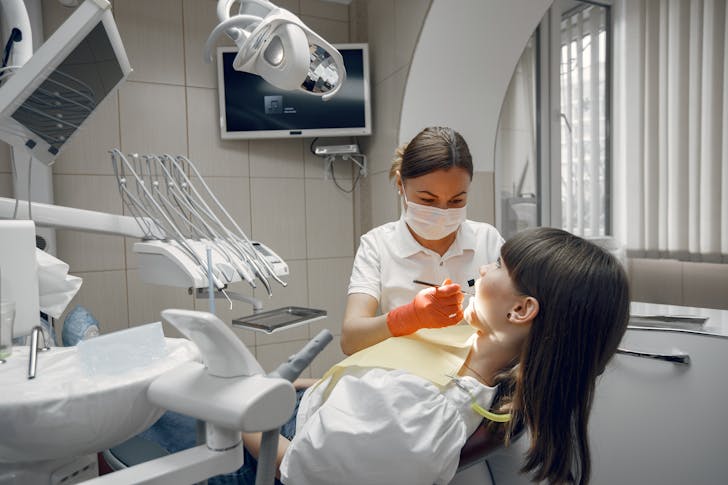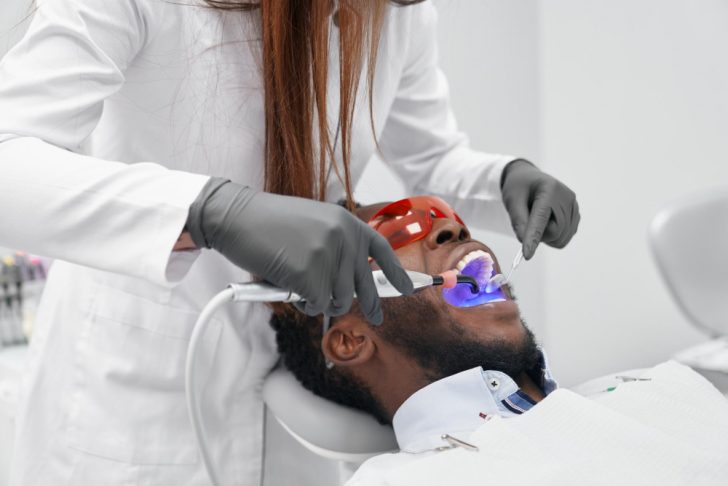Experiencing a chipped tooth can be unsettling, especially if it occurs unexpectedly while enjoying something as simple as ice or hard candy. Despite the robustness of tooth enamel, the hardest tissue in the human body, it's not invincible. Accidental impacts, biting into hard objects, or underlying decay can lead to tooth chipping. Fortunately, modern dentistry offers several effective remedies to restore your smile and prevent further damage. Here’s how to fix a chipped tooth effectively.
Immediate Steps to Take After Chipping Your Tooth
Discovering that you've chipped your tooth can be alarming. The first step is to schedule an appointment with your dentist as soon as possible to prevent additional damage or infection. In the interim, there are several measures you can take to manage the situation:

Gustavo Fring | Pexels | When you discover a chipped tooth, the first step is to schedule an appointment with your dentist as soon as possible to prevent additional damage or infection.
- Pain Management: Over-the-counter pain relievers like acetaminophen can alleviate discomfort. Additionally, rinsing with salt water can help soothe the affected area.
- Protecting Your Mouth: If the chipped tooth has sharp edges, covering it with wax paraffin or sugarless gum can prevent it from cutting your tongue or cheeks.
- Diet Adjustments: Opt for soft foods and avoid using the chipped tooth for biting to prevent stress on it.
How to Fix a Chipped Tooth: Common Dental Procedures
Depending on the extent of the damage, your dentist will decide on the most suitable treatment to repair your chipped tooth. Here are some of the typical procedures used:
Dental Filling or Bonding
For minor chips, a simple dental filling or bonding might suffice. Bonding is particularly useful for visible teeth since it involves applying a tooth-coloured composite resin that blends seamlessly with your natural teeth. The process is straightforward and usually doesn't require anesthesia. The dentist will roughen the affected area, apply an adhesive, and then sculpt the composite into shape before curing it with ultraviolet light.

ArtPhoto_studio | Freepik | Dental bonding is particularly useful for visible teeth since it involves applying a tooth-colored composite resin that blends seamlessly with your natural teeth.
Dental Cap or Crown
More significant damage might necessitate a dental crown, which involves filing down the tooth and fitting it with a custom-made cap. This procedure not only restores the tooth's appearance but also its functionality. Crowns can be made from metal, porcelain fused to metal, resin, or ceramic, each offering different benefits.
Root Canal Therapy
Severe chips that expose the tooth's pulp might require root canal therapy. This procedure involves removing the damaged pulp, cleaning the root canal, and sealing it to prevent further infection. While root canals may sound daunting, they are typically no more uncomfortable than getting a filling.
Dental Veneers
A veneer might be the best option if the chipped tooth is a front tooth. Veneers are thin covers that adhere to the front of the tooth, providing a smooth, natural appearance. Preparing a tooth for a veneer involves removing a small amount of enamel and making an impression of your tooth, which a dental lab will use to create the veneer.
Treatment for Broken or Knocked-Out Teeth
In cases where a tooth is not just chipped but knocked out, quick action is crucial. If a permanent tooth is reinserted within 30 minutes, it is more likely to be successfully reimplanted. If reinsertion isn't possible, keeping the tooth moist in milk or saliva is vital until you can get to a dentist or emergency room.
While dealing with a chipped or broken tooth can be nerve-wracking, understanding the available treatments and acting swiftly can greatly improve the outcome. Regular dental check-ups and taking precautions like wearing mouthguards during sports can also help protect your teeth from such injuries. Always remember that maintaining your dental health is integral to your overall well-being, and your dentist is there to help restore and preserve your smile.





